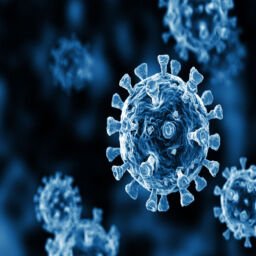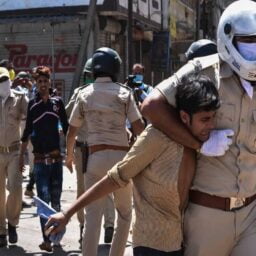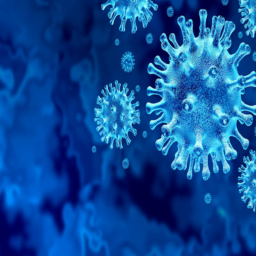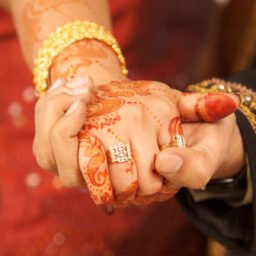INTRODUCTION
India, the world’s largest democracy, is a melting pot of different opinions, views, ideologies and beliefs. It is the very existence of these differential opinions and views that add flavour to the essence of our democracy. Hence, it is justified that as and when citizens have objections or issues with various policy decisions of the government, they raise their voices through symbolic protests. Article 19(1)(a) of the Constitution of India grants us the Right to Freedom of Speech and Expression through which we can exhibit our views freely by mouth, writing, printing or through any other methods. [1]
It is by exercising this right that citizens at times dissent against government decisions through mass protests and demonstrations. From time to time, such kind of protests has given rise to popular social and political movements across the country. The Namantar Andolan in 1978, the Save Narmada movement in 1989, Anti CAA agitations in 2019-20 and the very recent protests over the Farm Laws are examples of continuous struggles by various sections of the society to get their voice heard and ensure that their demands are fulfilled.
PROTESTS DURING PANDEMIC
2020 was the year when normal life came to a standstill across the country as the deadly coronavirus started to spread havoc across the globe. Nationwide lockdown had to be imposed and extended for several months, and social distancing and wearing of face masks became the “new normal”. When the situation was beginning to seem normal at the beginning of 2021, the country was hit by another atrocious second wave, with millions of people hospitalized and crematoriums overflowing with corpses. Religious gatherings, political rallies and even farmer protests across the country were the blunders that fuelled the spread of the deadly Delta variant, leading to the second wave. Even presently, the wave has not ebbed completely and there is an apprehension of a third wave.
However, despite warnings by experts, Covid appropriate behaviour has gone for a toss with mass gatherings continuing to happen in several clusters of the country. The judiciary has described such events as a violation of the fundamental Right to Life under Article 21.
Article 21 reads as:
“No person shall be deprived of his life or personal liberty except according to a procedure established by law.” [2]
The Supreme Court of India on 16 July 2021, while asking the Uttar Pradesh administration to reconsider holding Kanwar Yatra remarked that the Right to Life is paramount and that all other sentiments, even religious, are subservient to this most basic fundamental right. [3]
Given the fact that there has been both govt and judicial intervention to not allow mass gatherings, it is logical to apply the same rationale to protests and demonstrations as they possess the same risks that can threaten the life and security of other citizens. Several political parties and unions have been staging protests and dharnas in different parts of the country over fuel and LPG prices and the privatization of PSUs. The farmers who have been camping near the borders of Delhi since the beginning of the pandemic have not shown any signs of retreat. Such events can nullify the gains made so far in controlling the virus and turn into superspreader events. If that happens, it will lead to numerous people becoming susceptible to the virus, which may further cause a lot of casualties and shatter the lives of hundreds of families. This shall be in all likelihood a gross infringement of the Right to Life.
For instance, the adverse implications of farmer protests were felt during the second wave when groups of farmers assembling near the Delhi border used to go back to their villages in Punjab and Haryana for some time to take care of their crops. This made it possible for the virus to spread to their families and other community members. As per govt data, between 23 February and 23 March, the number of active cases in Punjab shot up by over 600 per cent — from 3,295 to 19,403. The number of deaths rose from 5,779 to 6,435. This in itself is evidence of how protests can endanger public security during a pandemic. [4]
The Government of India on 1st June 2021 took a bold decision to scrap the most career-defining examination in our country i.e. the CBSE standard 12th board exam, keeping in mind the fact that in the absence of strict enforcement of social distancing measures, students’ health and safety can be compromised. Consequently, other state board and university exams were also cancelled, and national level entrance exams were deferred indefinitely. However, even though significant exams were prohibited from being conducted, localized protests kept on taking place over a range of issues varying from state to state.
During a pandemic when the utmost priority is to save lives by avoiding all kinds of gatherings, no matter how significant they might be, it makes absolute sense to restrict protests under the National Disaster Management Act of 2005 as it is the primary duty of the government to uphold the Right to Life in letter and spirit.
CONCLUSION AND SUGGESTIONS
A healthy democracy is always reflective of the popular participation of people in various social, political, economic and cultural affairs. Hence, the Right to Freedom of Speech and Expression is intrinsic for any democratic system. However, no fundamental right grants unlimited freedom and liberty as it comes with certain riders and is subjected to reasonable restrictions. In the middle of a catastrophic pandemic, where saving human lives is of supreme importance, the Right to Life stands at a much higher stature than any other fundamental right. It is the constitutional obligation of both the government and the judiciary to ensure that any event in the country that can worsen the situation doesn’t take place.
Protests can wait, but human lives aren’t disposable. Freedom of speech can be exercised through digital/online platforms as well as through print and electronic media. Unfavourable policy decisions can be challenged in the courts, as the judiciary always keeps its doors open to ensure justice. Letters/representations can be also sent to the concerned authorities. Till the situation comes under control, it is prudential for any country to avoid any sort of physical protests and instead resort to safer alternative methods.
Author(s) Name: Riyan Buragohain (Christ University, Bangalore)















